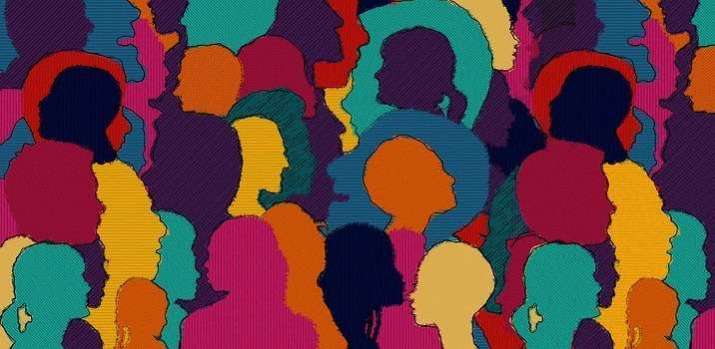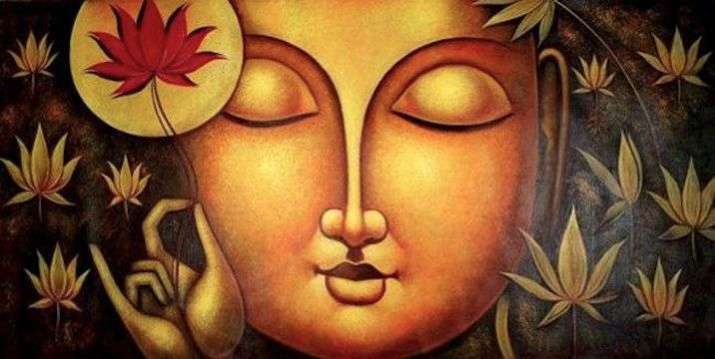FEATURES|COLUMNS|Death Dhamma
Are More People the Answer?

If everyone around you is going to die, how can you protect yourself from being without your loved ones? If you assume that your death is still years away, how do you make sure that, when it’s your funeral, there will be mourners?
As my parents aged and I wondered and worried about what might happen to them, I began to tell my friends that I wanted to surround them with bubble wrap. And after my father died and my mother started driving again, I really wanted to surround her and her car with bubble wrap. And one day, while listening to my mother and her friends talking about their concerns for their children and grandchildren, I realized that they too probably wanted guarantees that nothing would happen to their loved ones.
We know there are no guarantees. If I had successfully wrapped anyone in bubble wrap, it would have been suffocating. I would be causing the loss. All of this clinging to our loved ones and aversion to loss is difficult. In this passage from the Visākhā Sutta (Udana 8.8), we encounter a common reaction to the loss of family.
“I have heard that on one occasion the Blessed One was staying near Sāvatthī at the Eastern Monastery, the palace of Migāra’s mother. And on that occasion a dear and beloved grandson of Visākhā, Migāra’s mother, had died. So Visākhā, Migāra’s mother—her clothes wet, her hair wet—went to the Blessed One in the middle of the day, on arrival, having bowed down to him, sat to one side. As she was sitting there the Blessed One said to her: "Why have you come here, Visākhā—your clothes wet, your hair wet—in the middle of the day?"
When this was said, she said to the Blessed One, “My dear and beloved grandson has died. This is why I have come here—my clothes wet, my hair wet—in the middle of the day.”
The Buddha does not offer to bring her grandson back to life. He does suggest to her that perhaps she would like to have a larger supply of family. Now, there is an interesting solution. If I had an entire city’s worth of friends and family, wouldn’t I always have someone? The Buddha specifically names Sāvatthī. During his time, Sāvatthī was a large trade center. Possibly the sixth-largest city in India.
“Visākhā, would you like to have as many children & grandchildren as there are people in Sāvatthī?”
“Yes, lord, I would like to have as many children & grandchildren as there are people in Sāvatthī.”

Visākhā thinks that a large family, a family with as many people as those who live in Sāvatthī is an excellent idea. Maybe it is inconceivable to her to think that death could come for so many people. If she has more people, then when one dies, she still has another. She has lost this one grandson; she must be aware of the fact that she can lose more. A bigger collection of children and grandchildren might be a good idea. But the Buddha is not going to give her a family the size of a large city. He is going to give her an understanding of death, and of attachment. He is going to help her understand what her wish for such a large family means. He asks her about the death rate in Sāvatthī.
“But how many people in Sāvatthī die in the course of a day?”
“Sometimes ten people die in Sāvatthī in the course of a day, sometimes nine... eight... seven... six... five... four... three... two... Sometimes one person dies in Sāvatthī in the course of a day. Sāvatthī is never free from people dying.”
“So, what do you think, Visākhā? Would you ever be free of wet clothes & wet hair?”
“No, lord. Enough of my having so many children & grandchildren.”
And there it is. Not only will a family the size of a city not solve the problem. In some ways, it is going to make Visākhā’s life much more difficult. She will always be losing someone. This is not a commentary on family planning. It is not meant to tell you to shy away from others. Do not go out and end your loving relationships. If you do, you are still going to experience suffering. By cutting someone off by ending the relationship, you will still experience grief and you will miss out on enjoying your relationship while you are both alive. What then is the advice for Visākhā, and for us?
• You don’t need more people; you need less clinging and aversion. You need more comfort with impermanence.
• Make friends, have good positive relationships. Make sure that you seek to have kalyāṇa-mittatā or admirable friendships. These are relationships you make for the right reason—quality, not quantity.
• Don’t think that you or your family and friends will be spared. Death comes for all of us.
• Seek to love without attachment.
• Remember that you are not the only one who goes through suffering.
Visākhā was looking for a way to escape the pain that came from losing her grandson. She was trying to find a solution to circumvent death and grief. She went to the Buddha for help. And he did help. He gave her an awareness that as long as she was alive, she would experience the death of others. Everyday there is death. It is not something to be free from, It is something to learn to accept as a normal part of life.
See more
Margaret Meloni: Death Dhamma
The Death Dhamma Podcast (Margaret Meloni)
Related features from Buddhistdoor Global
Please Don’t Come Back
Pure Land Buddhism in Noh: The Shuramono Plays of Zeami
A Guided Tour of Hell: Illustrating Infernos in a Buddhist Graphic Novel
A Student Death














